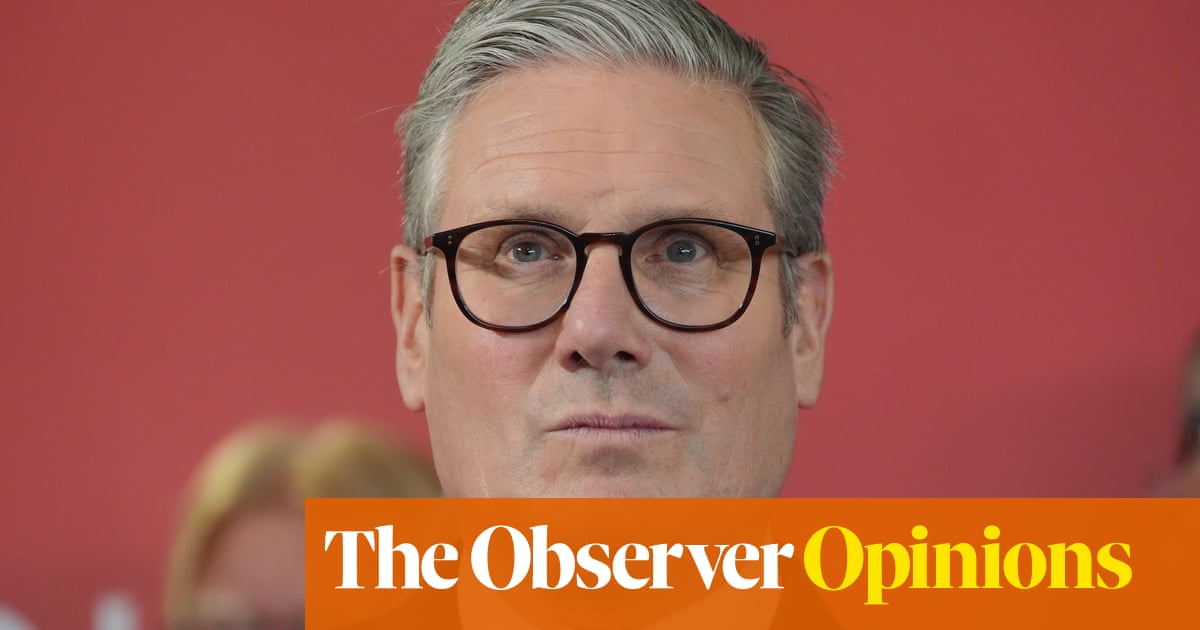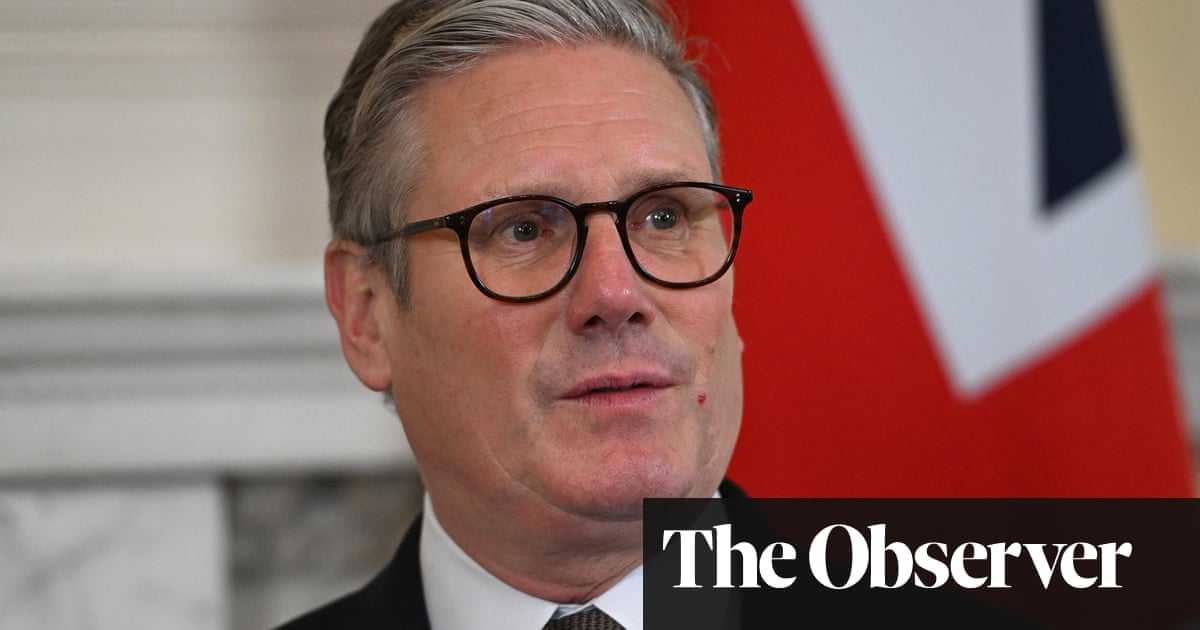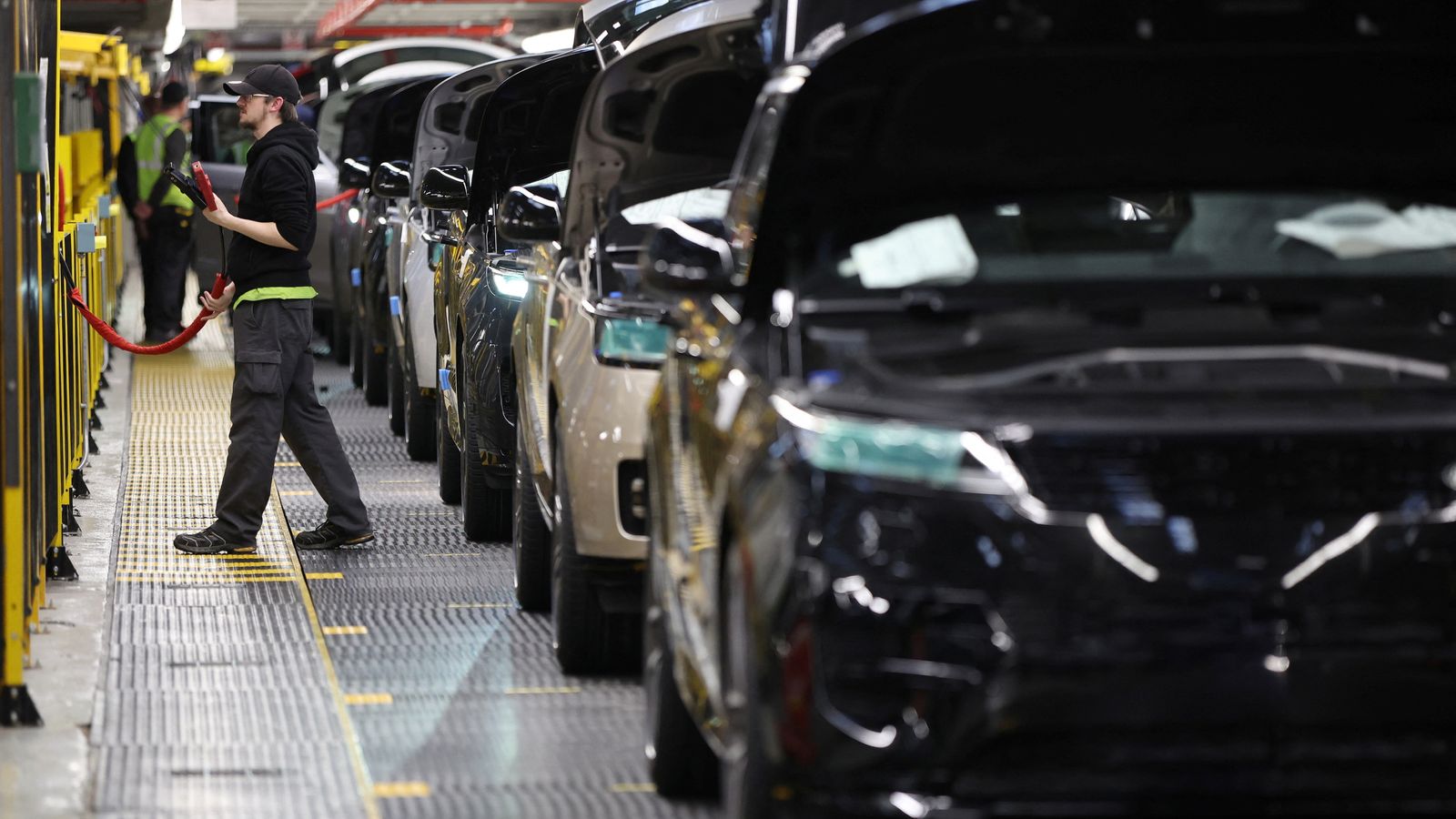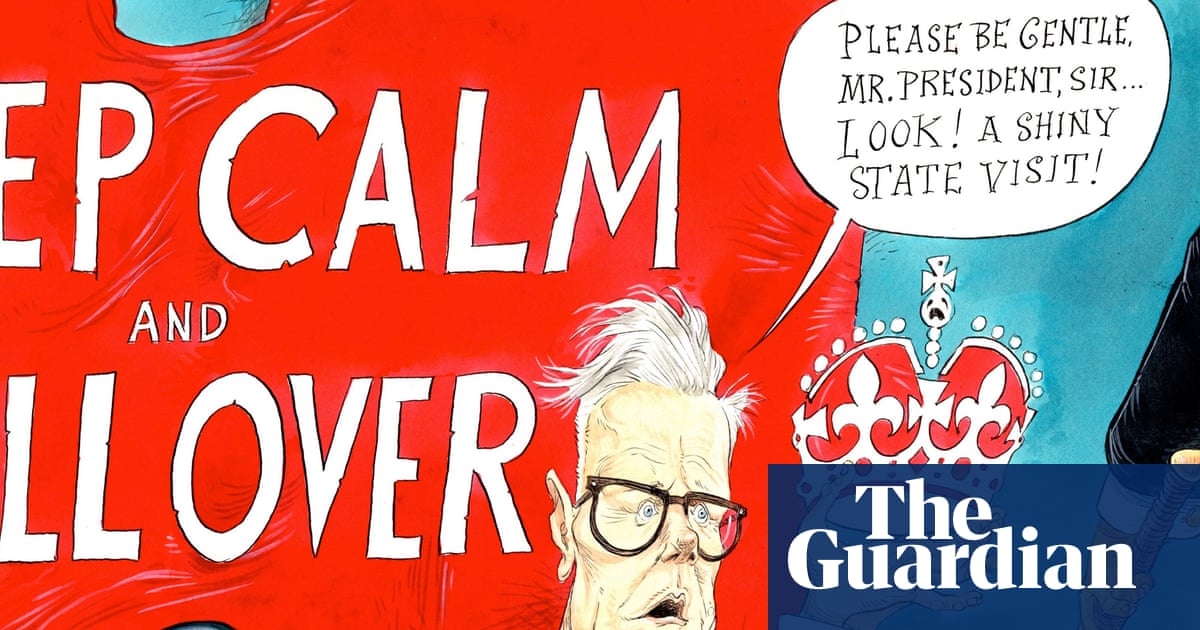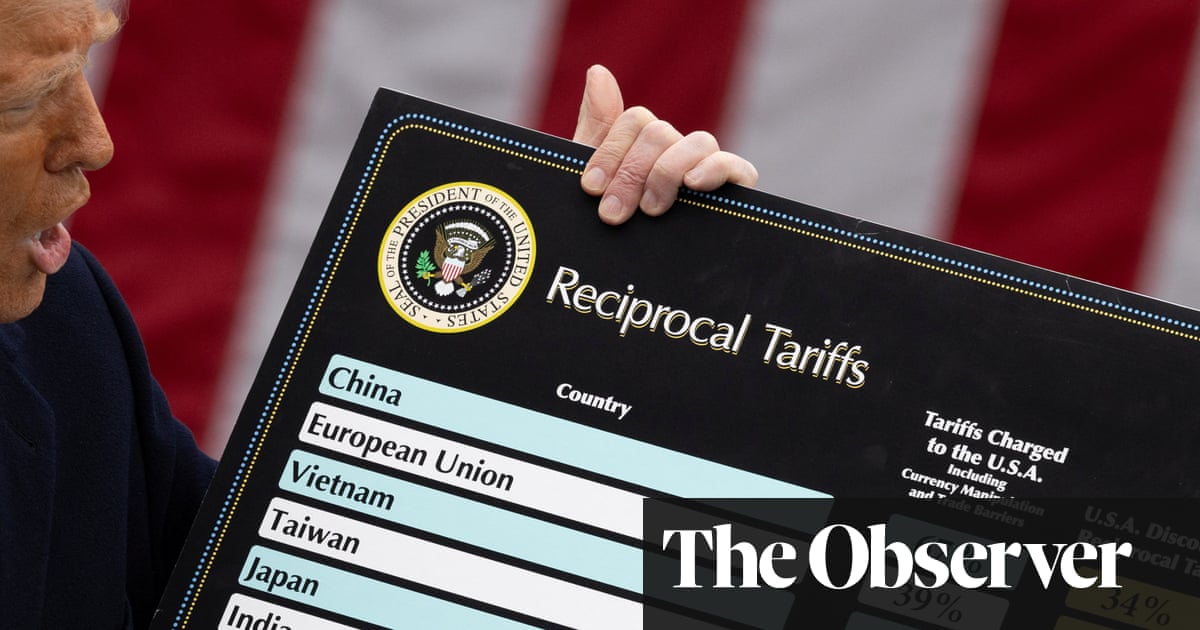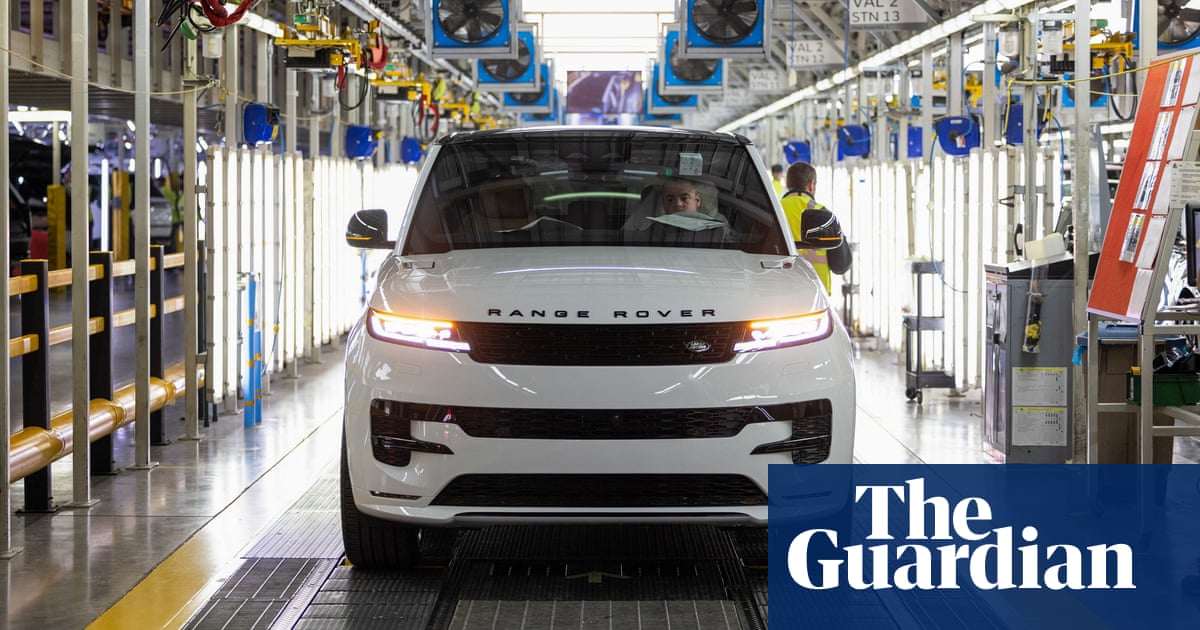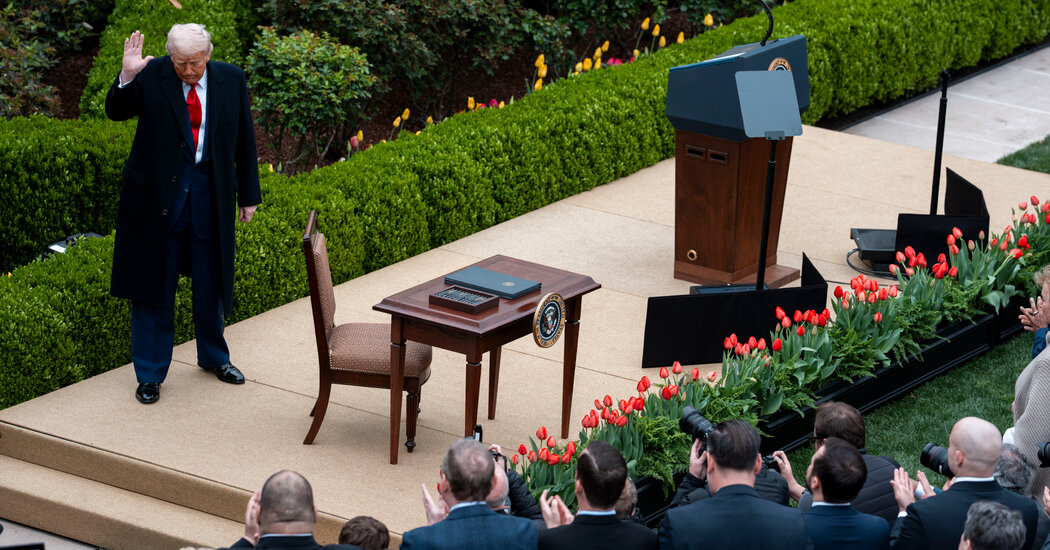
Republicans Like to Cut Taxes. With Tariffs, Trump Is Raising Them.
The Republican Party embarked this week on a haphazard experiment in economic policymaking, wagering that the United States can weather a monumental tax increase in the form of broad tariffs on imported goods as long as Congress also cuts taxes on income.
It’s a mash-up that many investors, economists and even some G.O.P. lawmakers expect to be a failure.
“I always think that with gambling, at least you have a chance of winning. This is worse than that,” Douglas Holtz-Eakin, a conservative economist who worked for former President George W. Bush, said. “This is betting with the mafia. You’re going to lose.”
President Trump’s plan to charge at least a 10 percent tariff on nearly all imports into the United States — along with much higher rates on goods from many countries — is the culmination of his quest to force companies to manufacture domestically, even if it comes at the expense of a relatively strong economy. Because tariffs are a type of taxation, Mr. Trump’s plan is among the largest tax increases in decades, analysts say, a policy change that sent the stock market reeling, paralyzed corporate investment and shoved the economy closer to a recession.
At the same time, Republicans on Capitol Hill are plowing forward with legislation that would lock in lower taxes for American individuals and companies. There’s diminishing hope among Republicans that those cuts can make up for drag created by the tariffs. Some of Mr. Trump’s allies and tax cut enthusiasts, like Stephen Moore, his former economic adviser, have been begging the president for “more tax cuts and less tariffs, please.”
Of course, Mr. Trump and the White House argue that tariffs are not taxes on Americans, but rather on foreign companies that will have to lower their prices to maintain access to the U.S. market. Mainstream economists have consistently found that tariffs raise prices for American consumers and companies, including domestic manufacturers who import materials to turn into final products.
Republicans who acknowledge the contradictory nature of their economic agenda — raising taxes on one hand while trying to cut them on the other — said they were focused on the tax legislation, while leaving tariffs to Mr. Trump.
“Are they at odds with each other? Yes, common sense would go ahead and say that they are, which is true,” said Representative Max Miller, an Ohio Republican and member of the tax writing committee in the House. “I’m focused on what we can control here in the House that will have a great economic impact for every American.”
For many Republicans, it wasn’t supposed to look like this. They had expected that their well-worn economic policy strategy — cutting taxes and reducing regulations — would elate corporate America and induce companies to hire more workers and raise wages. The White House on Thursday released rosy projections for how its tax cuts could supercharge growth.
On Friday, after a bruising market rout stemming from the tariffs, Mr. Trump took to Truth Social to portray a bright future. “Big business is not worried about the Tariffs, because they know they are here to stay, but they are focused on the BIG, BEAUTIFUL DEAL, which will SUPERCHARGE our Economy. Very important. Going on right now!!!”
But the economic harm created by the tariffs is expected to overwhelm any benefits gleaned from the tax cuts, which many independent economists already saw as minimal. That’s because the tax effort in Congress is primarily aimed at keeping rates where they are now by extending what Republicans put into place in 2017. Mr. Trump’s tariffs, meanwhile, have increased the average tax rate on goods imported into the United States by an order of magnitude.
“The tariffs will strangle foreign investment, and the uncertainty and inefficiencies that these trade dislocations create are already freezing business investment,” said Jessica Riedl, a senior fellow at the Manhattan Institute, a conservative think tank. “The tax cuts are not stimulus because we’re simply extending current policy.”
New measures that could end up in the tax bill, like Mr. Trump’s proposals to not tax tips or Social Security benefits, are expected to have little sway over the performance of the entire economy. And even some measures that academics see as actually helping grow the economy, like tax breaks incentivizing capital investment, may not make much of a difference as companies worry about whether the global trading system will collapse.
Plus, Congress is still crafting the legislation, and tax cuts slowly seep into the economy, while Mr. Trump’s tariffs take effect imminently. That’s cold comfort for lawmakers who will face voters again in less than two years.
“Even in the optimistic scenario where the economic effects of the tax cuts roughly offset the costs of the tariffs, in the short run it’s pretty clear we’re going to have a reduction in economic activity,” said Alan Auerbach, an economics professor at the University of California, Berkeley.
The tariffs will help fill the budget hole created by the tax cuts in Congress. Analysts at the Tax Foundation, a think tank that generally favors lower taxes, expect that Mr. Trump’s various tariffs could generate as much as $3.2 trillion in revenue over the next 10 years, a substantial sum that could help pay for the roughly $5 trillion in tax cuts Republicans in Congress are eyeing. To tie the fate of the two together, some Trump administration officials, like senior trade adviser Peter Navarro, have even gone so far as to say that “tariffs are tax cuts.”
But tax cuts and tariffs have varying effects for different rungs of the socioeconomic ladder. Rich Americans — who pay the bulk of the income tax in the United States — benefit the most from tax cuts. Tariffs, which raise prices on everyday goods, are not much of a burden for the rich, who have plenty of money to spend and dedicate only a slice of it to the more expensive imports.
Poor Americans spend much of their income on consumer items that could become more expensive because of tariffs, meaning they see a larger tax increase as a result. At the same time, these Americans don’t pay much in income taxes, potentially leaving them at a loss.
“It’s a regressive tax to pay for a tax cut. It’s hard to argue that that’s very stimulative,” said Michael Gapen, chief U.S. economist at Morgan Stanley.
Consider Mr. Trump’s proposal to allow Americans to deduct interest payments on car loans from their taxes if they purchase car made in the United States. The president has presented the tax break as a complement to his steep tariffs on vehicles made overseas, helping reduce costs for middle-class Americans.
But for Americans who don’t owe much in income taxes, the deduction may not generate savings, while they may still have to borrow more to afford cars that become more expensive because of the trade barriers.
“They’ve never had a deduction. Deductions are supposed to be for rich people, and it’s unfair to have that,” Mr. Trump said in the Oval Office recently about his plan. “I think I know more about deductions than any human being on earth.”
Colby Smith contributed reporting.



